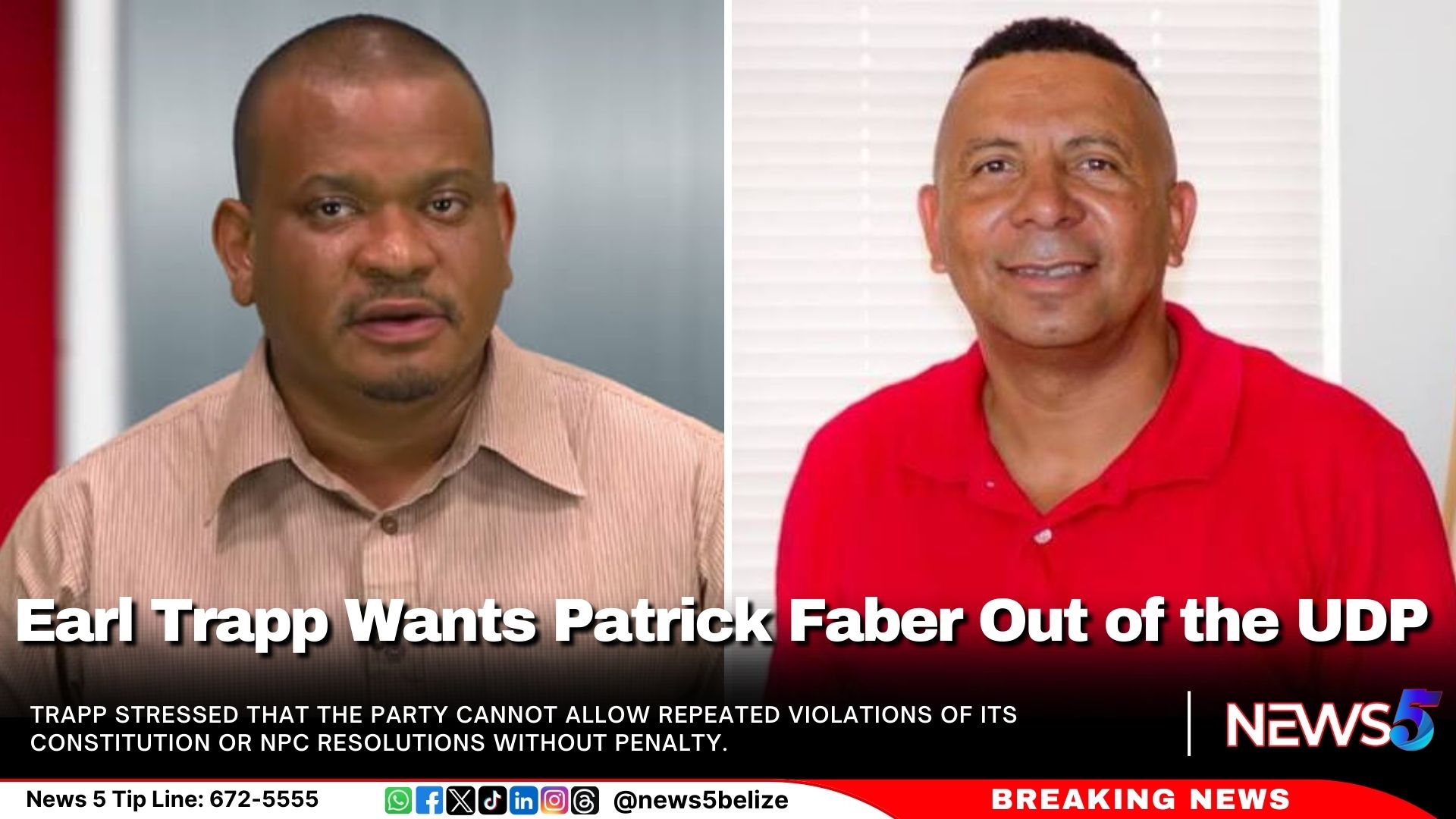San Ignacio/Santa Elena Town Mayor Earl Trapp wants the United Democratic Party to expel Collet Area Representative, Patrick Faber.
Trapp, who is the only UDP mayor in the country, wrote to party chairman Michael Peyrefitte on July 26th. In the letter, Trapp tells Peyrefitte that Faber committed violations and made “disparaging remarks regarding the Party Leader and the Party, which bring our entire Party into disrepute and violate the Party Constitution as well the August 20, 2022 and May 27, 2023 NPC Resolutions which prohibit members according Article 5(5) from engaging in behavior that is injurious to the Party.”
“Recently, when I spoke of the need for the UDP to reform, this is exactly one of the points that needs to be addressed, Party Officials whose repeated actions are not in the best interest of the Party must be held accountable,” he continued.
Trapp stressed that the party cannot allow repeated violations of its Constitution or NPC Resolutions without penalty. He said Faber’s destructive behaviour erodes public trust in the UDP and undermines their chances in the upcoming general elections.
He called for Faber’s expulsion, in accordance with NPC Resolution 5/27/23, to rid the UDP of internal elements with ulterior motives.
Trapp believes that Faber’s continuous disrespect for the Constitution and disregard for the party’s best interests necessitate his expulsion.
The matter is expected to be addressed at the NPC meeting on August 3, 2024.
On July 25, Faber took to Facebook to post: “I do not support dictatorship and censorship! If I’m unable to say how I feel in the party’s internal structures, I’ll say it here loud and clear! I don’t support the dictator leader of the UDP and he must go!”
